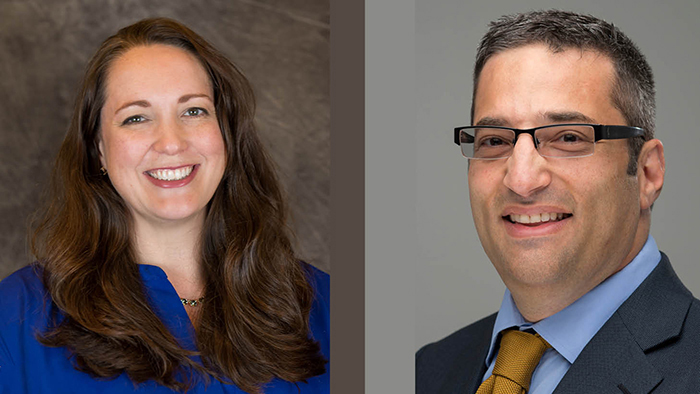
UCEDD Directors Discuss Importance of DD Network Partners in NH and ME
Source: NH-ME LEND Spotlight, LEND Field Experiences in the DD Network, (March 24, 2021)
In the March 2021 edition of the NH-ME LEND Spotlight, Dr. Kelly Nye-Lengerman, Director of the University of New Hampshire Institute on Disability; and Dr. Alan Cobo-Lewis, Director of the University of Maine Center for Community Inclusion and Disability Studies; discuss the importance of the Developmental Disabilities (DD) Network partners in their respective states. These partner organizations in both states also “provide rich and meaningful experiences in leadership training” for NH-ME LEND Program trainees.
The Developmental Disabilities Network consists of three partners in each state and territory authorized under the Developmental Disabilities Assistance and Bill of Rights Act of 2000 (the DD Act) and administered by the Administration on Disabilities (AOD): State Developmental Disabilities Councils (DD Councils), State Protection and Advocacy Systems (P&As) and University Centers for Excellence in Developmental Disabilities (UCEDDs).
In New Hampshire, these three partners are the New Hampshire Council on Developmental Disabilities (DD Council), the Disability Rights Center (P&A), and the University of New Hampshire Institute on Disability (UCEDD).
“Many of the grants that we write, such as the Living Well Quality Grant, include our DD Act Partners,” said Nye-Lengerman. “We also have a NH Quality Council, and all the DD Act Partners along with others are key members of that group.”
In Maine, these three partners are the Maine Developmental Disabilities Council (DD Council), Disability Rights Maine (P&A) and the University of Maine Center for Community Inclusion and Disability Studies (UCEDD). Maine also includes Speaking Up for Us, a Maine organization run by and for adults with developmental disabilities, as a fourth partner in the state’s DD Network. A handout describing Maine’s DD Network Partners (PDF) is available online.
“When a relevant bill comes up, all the partners give each other a heads up,” said Cobo-Lewis. “With restraint and seclusion, the [Developmental] Disabilities Council was interested in reducing the practice, not just reporting on it. They funded a project with a community agency to implement an intervention and then they hired us, the UCEDD, to be the evaluator of the intervention.”
The DD Network partners in NH and Maine provide a variety of leadership training opportunities for NH-ME LEND Program trainees: “Whether working on a specific topic issue such as restraint and seclusion at Disability Rights Maine, exploring the history of disability through the Maine Developmental Disabilities Council, engaging in policy assessment and analysis at the Disability Rights Center-NH, or developing testimony for a bill at the New Hampshire Council on Developmental Disabilities, trainees are building skills with [DD] Act Partners that support a new generation of leaders for the disability community.”
Photo credits:
Kelly Nye-Lengerman courtesy of the University of New Hampshire Institute on Disability.
Alan Cobo-Lewis courtesy of the University of Maine.
